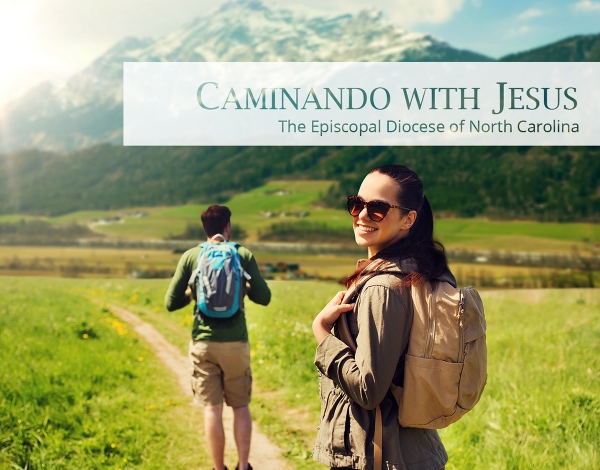CAMINANDO WITH JESUS: An Economy Where Greatness Is Possible

"They went on from there and passed through Galilee. He did not want anyone to know it; for he was teaching his disciples, saying to them, 'The Son of Man is to be betrayed into human hands, and they will kill him, and three days after being killed, he will rise again.' But they did not understand what he was saying and were afraid to ask him.
Then they came to Capernaum; and when he was in the house he asked them, 'What were you arguing about on the way?' But they were silent, for on the way they had argued with one another who was the greatest. He sat down, called the twelve, and said to them, 'Whoever wants to be first must be last of all and servant of all.' Then he took a little child and put it among them; and taking it in his arms, he said to them, 'Whoever welcomes one such child in my name welcomes me, and whoever welcomes me welcomes not me but the one who sent me.'”
- Mark 9:30-37
Who is the greatest?
That is the age-old question asked in every barber shop and beauty salon, on every front porch and street corner.
Depending on who is in the crowd, the answers might go something like:
Baldwin. Morrison. Walker. Butler. Wright.
Ali. Foreman. Louis. Tyson. Mayweather.
Aretha. Bessie. Nina. Whitney. Mariah.
It’s a question and conversation that stirs our passions and reveals our allegiances. We make lists, come up with rubrics and rationales, and, ultimately, narrow our choices down to one.
Who is the greatest?
The disciples are well-versed in this cultural practice as we find them debating how to rank themselves as followers of Jesus. And although we don’t get any insight into the nature of their self-justifications, it’s clear the essence of their logic equates to “it’s all about me.” On the surface, we might easily dismiss their argument as frivolous and narcissistic. But as a group of people living on the underside of empire, they recognize all too well that being the greatest has political, economic and social benefits.
The greatest gets honored. The greatest gets paid. The greatest gets served.
If Jesus were about to become the ruler of a new kingdom, then they wanted to be as close to the center of power and prestige as possible.
“But they did not understand what he meant and were afraid to ask him about it.”
Jesus picks up what the disciples are putting down and decides to flip it on its head. He tells them if they want to be great, then they must be “the servant of all.”
In one sense, Jesus has changed the rules of the game in a significant way by redefining greatness as what we do for others and not what we do for ourselves. Yet, if we are not careful, our service can unsuspectingly be coopted by the logic of “it’s all about me.”
“I tutored 30 kids at the literacy center for over 600 hours. I led a food drive that produced 10,000 meals in a week. I built 10 houses in 10 days with Habitat for Humanity. Beat that!”
“I’m sorry,” Jesus responds, “but I’m not looking for a Volunteer of the Year.”
Jesus doesn’t present servanthood as a means of self-justification but rather as a new way to see ourselves and one another, a new way to structure the way we live. To grasp this, we must recall that the teaching is not given to an audience of one. Jesus spoke to a group of 12, a tribe, a community. If we hear it together as a call to a collective body, we open ourselves up to the possibility of “the servant of all” becoming “all must serve.”
“But they did not understand what he meant and were afraid to ask him about it.”
What if greatness is not something we can accomplish alone but only something we can accomplish together? What if service is not intended to be just a personal value embodied in individual acts but instead a shared commitment to the common good?
All must serve and all must be served. Jesus was not trying to instruct on how each of us can become great on our own but rather trying to reveal that the possibility for greatness only exists within an economy of mutual service and care.
We are the greatest when we recognize and acknowledge that we belong to each other. We are the greatest when we remember and affirm that we are each other’s keepers. We are the greatest when we ground all of our relationships—within families, communities, institutions and systems—in that truth.
For in an economy where greatness is possible, everyone gets honored, everyone gets paid, everyone gets served.
Brandon J. Williams is a member of St. Titus’, Durham.
Tags: Caminando with Jesus
